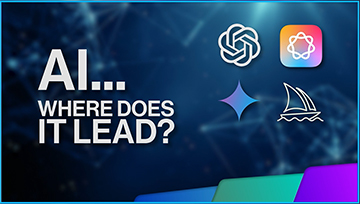Artificial Intelligence (AI) is often portrayed as a revolutionary advancement that may reshape the landscape of society, industry, and even human interaction! However, it is crucial to recognize that AI is not truly “artificial” in the sense of being independent or self-originating. Instead, AI is a product of human ingenuity and design. This leads to a profound realization: the intelligence exhibited by AI systems is indicative of a designer behind its creation—humans. Thus, one could argue that the existence of AI serves as a testament to the notion that intelligence inherently requires design, meaning a greater intelligence or designer must be behind humanity itself.
When we examine AI, we find that it operates based on algorithms, data processing, and decision-making frameworks that are meticulously crafted by human developers. These systems learn from vast datasets, enabling them to perform tasks like language translation, image recognition, and even strategic planning. AI has incredible potential to help and serve humanity because of the speed and accuracy at which it can pull information and make it readily available. However, the intelligence that AI exhibits is not organic; it is a reflection of the parameters set by their creators: people.
This raises important questions about the nature of intelligence itself. For instance, as a person, my mind has the ability to think and reason; but more than that, Humanity has emotions and can understand moral positions. We reflect our ability to be in relationship with God. Our decisions are not based on pure logic because emotions and ethics are also at play.
Yet, AI, on the other hand, only reflects the vast amount of information algorithms can access. AI therefore poses significant dangers, particularly because it lacks human morality!
An article from Scientific American emphasizes that AI systems, regardless of whether they possess consciousness, can be extremely dangerous. It states, “The danger isn’t that AI will become conscious and turn against us. The danger is that it won’t be conscious at all.”
So, think about it… the danger comes from their operational frameworks, which are devoid of ethical considerations and human empathy. Unlike humans, who navigate moral dilemmas through a complex interplay of emotions, values, and societal norms, AI systems operate purely on logic and predefined rules. The absence of a moral compass can lead to unintended consequences, especially if AI systems are deployed in high stakes environments like healthcare, law enforcement, or military applications!
For instance, AI algorithms used in predictive policing may reinforce existing biases in law enforcement, leading to discrimination that affects certain communities. What about autonomous weapons systems? They could make life and death decisions without the thoughtful ethical considerations that a human would typically engage in.
As AI continues to “evolve” or rather, work more expediently, the potential for misuse or unintended consequence increases. That raises critical questions about accountability. Who is responsible when an AI system makes a harmful decision? The developers? The users? The technology itself? Perhaps, we all need to take some responsibility? Or should the AI take full responsibility? The duality of AI as a product of human design and a potential threat underscores the need for responsible development and ethical considerations when we deploy it. It is essential for policymakers, technology experts, and ethical advisors to work together in establishing guidelines for certain uses of AI. But if we try to make sure that AI doesn’t corrupt morality, whose morality do we use as a guide?
That’s why it’s important for Bible believing Christians to be aware and stand for the truth of God’s word in the midst of this new technological revolution. What does moral responsibility look like in the age of Artificial Intelligence? Well, if we as humans are the ones who have morality and relationship with God, then we must create frameworks that not only prioritize innovation but also ensure that ethical considerations are integrated into the design process and based upon the Word of God.
AI serves as a powerful reminder that intelligence requires design, clearly pointing to the existence of a greater Designer behind humanity’s intelligence. However, this recognition brings with it a responsibility to address the potential dangers posed by AI, particularly its lack of human morality.
As we navigate this complex landscape, it is imperative to foster ethical considerations with a Biblical worldview alongside technological advancement, ensuring that the intelligence we create serves humanity positively and responsibly because we ultimately must answer to our Creator. But where is all of the AI leading? Are the creators of AI trying to ascend to the heavens and create a utopia? Can they live forever through machines? Or is this the next Tower of Babel that will divide the world? I’m cautious… but optimistic that it can be used for good.
Stand with me on these important issues to ensure that there remains a clear distinction between right and wrong. Hundreds of thousands more are joining us in this stand, and I urge you to support this absolutely crucial cause.
I’m David Rives,
Truly, the heavens declare the glory of God.
The form is not published.

